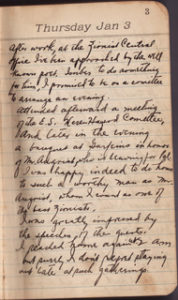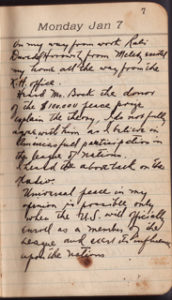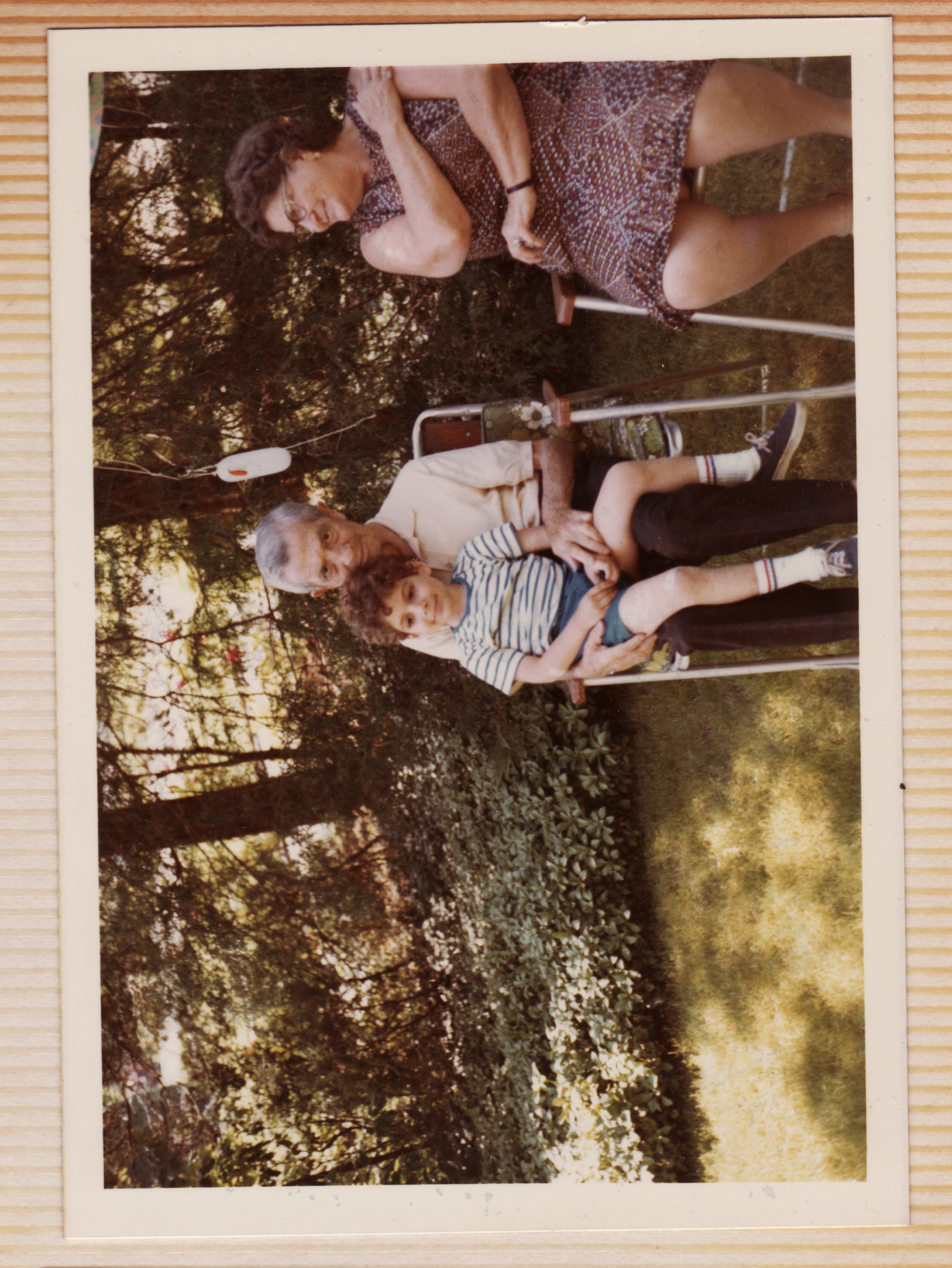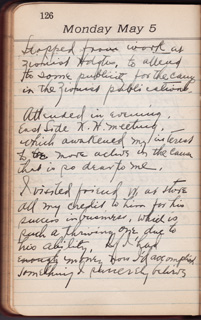
After work, at the Zionist Central
office I’ve been approached by the well
known poet, Imber to do something
for him, I promised to be on a comittee
to arrange an evening.
Attended afterward a meeting
of the E.S. Keren Haysod Comittee
and later in the evening
a banquet at Garfeins in honor
of Mr. Angrist, who is leaving for Pal.
I was happy indeed to do honor
to such a worthy Man as Mr.
Angrist, whom I count as one of
the best Zionists.
I was greatly impressed by
the speeches of the guests.
I reached home again at 2 am
but surely I don’t regret staying
out late at such gatherings.
—————–
Matt’s Notes
Like many Jews who had grown up in the repressive, sequestered environments of European shtetls, Papa passionately believed in the idea of Jewish statehood and spent much of his free time raising funds, “arranging an evening” here or there and “staying out late at such gatherings” as Zionist meetings and receptions. His mention of the “Keren Haysod Comittee” is historically interesting because Keren Hayesod (as its name is typically written in English) is now a large international organization, but it was only four years old when my grandfather and his colleagues gathered at the East Side chapter meeting described here. Were they in unheated rooms, wrapped in overcoats and sucking on cigarettes while they laid their plans? Or were they already well-established, pulling ahead of other organizations that hatched in the wake of the Balfour Declaration? Did they pursue their Zionist dreams in the very Lower East Side spaces where New Yorkers now pursue candied sea urchin cocktails and chocolate mojitos? I’ll write Keren Hayesod for more information and see what they have to say.
If you’re familiar with Israel’s history, you might have felt a little jolt at the mention of “the well known poet, Imber”, but settle down — Naftali Herz Imber, who wrote the lyrics to Hatik vah (the Israeli national anthem) died in 1909. Papa is probably talking about Samuel Jacob Imber, a Galician poet who spent a few years in America. With only the Internets at my disposal I can’t find out much about him at the moment other than that he wrote in Yiddish and was killed by Nazis in 1942, but please drop a comment below if you know more.
I’m also not sure who Mr. Angrist is or what Garfein’s is — perhaps it’s the home of a man named Garfein, or maybe it’s a long-lost, schmaltz-soaked eatery like Sammy’s Roumanian Steakhouse. I again picture my Papa and his cohorts crammed together, toasting the august Mr. Augrist with bread and salt, shouting over one another to pay proper tribute (and for some reason I also picture them seated Last Supper-style, which tells you more about my high regard for my grandfather than my knowledge of Zionist banquets.) Anyone out there have a picture of a 20’s era Zionist gathering, or any information on who Mr. Augrist might be?
Update:
A Jewish friend from South Africa, asked if she’s heard of Keren Hayesod, writes:
…of course I’ve heard of Keren Hayesod. The [South African] Jewish community was so homogenous and so Zionist that when I was growing up all tzedokkah went to United Israel Appeal and we had the blue and white ‘pushkas’ (charity boxes) from Keren Hayesod. I used to get mad because we were giving old clothing, etc to people in Israel rather than the poor of South Africa. I even did ‘bob-a-jobs’, as we called them, for KH. You’d go round to old Jewish people’s homes to help them with some small task in return for a donation to Israel.
Interesting. I just didn’t know about KH until I read about them in Papa’s diary.











